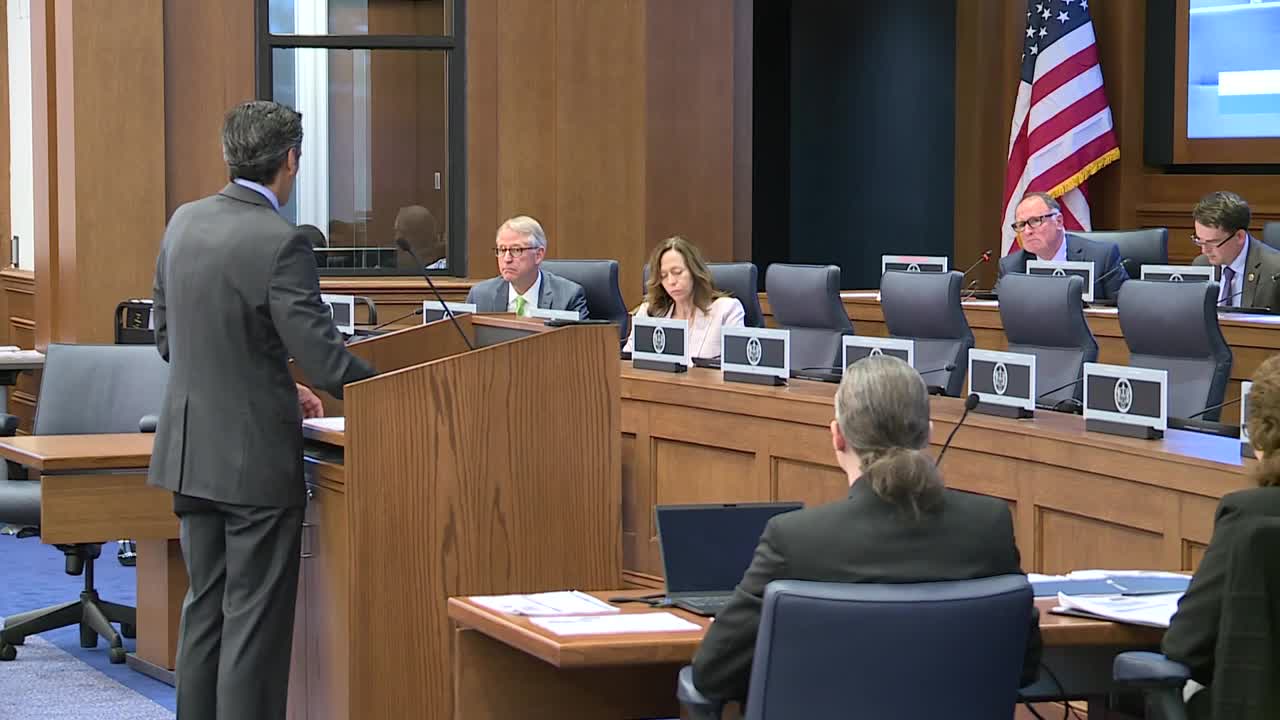RICHMOND, Va. -- The investigative arm of Virginia's General Assembly found a need to overhaul the leadership structure at VCU and VCU Health following a failed development project that VCU Health paid more than $80 million — so far — to get out of.
The Joint Legislative Audit and Review Commission (JLARC) released their findings after a thorough review of VCU Health's plan to turn the old Public Safety building on Clay Street in Richmond into a outpatient facility went south.
JLARC investigators said the former CEO of VCU Health felt pressured by members of VCU President Michael Rao's cabinet to sign a lease agreement for the project with the developers and city of Richmond, which owns the Clay Street property, despite concerns.
The academic arm of VCU is legally a separate entity from VCU Health, which runs the operations and medical side of the health system. There is required collaboration between the University leadership and health system leadership, but JLARC found the overlap between leadership of both entities led to problems with the Clay Street project.
"The CEO signed a lease he had concerns about after being advised to do so by members of the VCU President’s cabinet, who believed they were carrying out the president’s priorities," said Lauren Axselle, who led the study for JLARC.

In 2022, after the lease agreement was already signed, the developers of the project brought site and budgetary concerns with the project to health system leadership, investigators said. By early 2023, VCU Health's Board of Directors voted to halt the project and pay to get out of the agreement — $73 million went to the developers and $7.5 million to the city of Richmond.
VCU Health paid $5 million to the city for demolition of the site, officials said. That demo remains ongoing.
Rao addressed state lawmakers who head the commission, saying the $80 million payment avoided a possible credit downgrade for the health system and even greater sunk costs on the project.
"We all regret the result wasn’t what anyone wanted, but I will say the buck stops with me as chair of the health system board of directors," Rao said.

"We all knew at that time that this was a very difficult decision, and this was a discussion that took place over many, many meetings with many, many people," he continued. "It was also the right decision because it avoided far greater future financial liabilities.”
JLARC said VCU Health has already put in place new procedures and protocols for all multi-million dollar capital projects that are industry standard and include multiple off-ramps, where the health system can stop projects if problems come up. JLARC also recommended VCU's President should not chair the board of the health system.
Rao agreed with that assessment and said he is not aware of any other university president who also serves as the head of a university health system.
"It is a coordinating role anyhow, but it is a confusing thing to have out there," he said.
JLARC recommended making changes to the VCU Health Board of Directors and to restructure the responsibilites of the VCU Health's CEO, among a host of other recommendations. Some of the recommendations would take action by the Virginia General Assembly, and those that require action by VCU Health's board will likely be taken up for review in the coming weeks, Rao said.
You can read JLARC's full report here.
State lawmakers on the commission focused on the main outstanding question with the Clay Street agreement: the annual $2.5 million payment to the city of Richmond "in lieu of taxes" on the property. Officials said one of those payments was sent to Richmond last year, but state lawmakers questioned whether those payments can legally continue since VCU Health does not own the Clay Street property.
VCU Health said their lawyers felt at the time the agreement was signed the payments were above board, but after language was included in the state budget, they are in discussions with the city over the payments.
"There was an $80 million payment to get out of this deal, and there’s still the in lieu of tax payment. I don’t think there’s ever been a contract like that for a public entity," said Sen. Creigh Deeds (D-Charlottesville).
Richmond officials attended Wednesday's hearing, and a spokesperson said the city contends the payments should continue.
"The city believes the guaranteed obligation agreed to by VCUHS needs to be honored. It is a contractual requirement entered into by VCHUS of their own volition," the spokesperson said via email.
Depend on CBS 6 News and WTVR.com for in-depth coverage of this important local story. Anyone with more information can email newstips@wtvr.com to send a tip.





